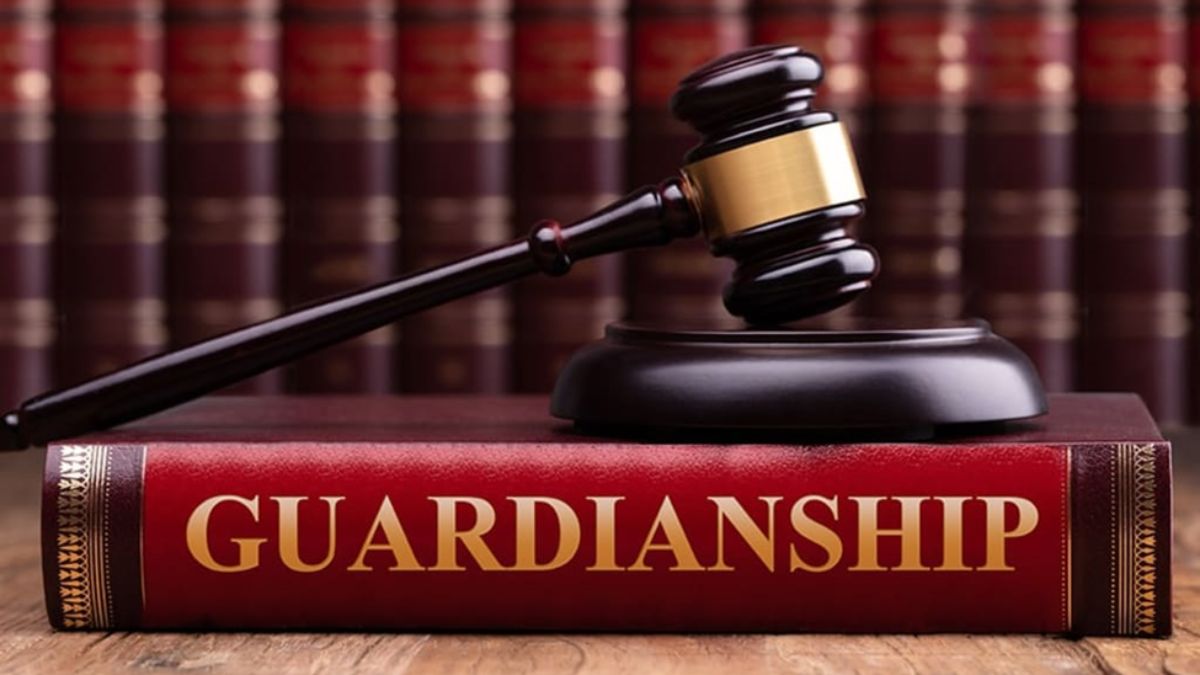LAW
A Step-by-Step Guide On What to Do After a Rear-End Car Accident

Envision driving on sunny roads with great concentration, and suddenly, you get in a rear-end accident! There’s no doubt that getting rear-ended can be a highly traumatizing and confusing encounter. It can occur at any time to anyone.
So, what do you need to do if you find yourself in this ill-fated situation? Definitely, no one wants to be a car collision victim; however, when it comes to reality, awareness about what steps to follow after a car accident and how to manage the consequences more efficiently.
That’s why we’re going to share with you the eight necessary steps you should take to navigate through the aftermath if you are in a rear-end accident.
Step #1 – Look for Any Injuries Right After an Accident
First of all, you need to ensure the safety of every person involved right after a rear-end accident. Don’t panic and check yourself and any passengers for injuries without any delay. You must be aware that even minor rear-end accidents can lead to significant damages.
If you find anyone injured or even in a critical condition, then you should seek emergency aid right away. By doing so, the chances of significant loss or wrongful death can be lower.
Step #2 – Move Your Car to a Safe Location
The next step you need to take is to turn on your hazard lights so that you can alert other drivers. You should also use cones or warning lights to mark the accident scene.
Suppose your rear-end car accident is minor; it means that your car is driveable. So, it’s best to move your vehicle to the roadside or any other safe location. Once you do so, it can prevent obstructing traffic and further accidents.
On the contrary, if the rear-end accident badly damaged your car, injured someone, or caused death, and if moving your vehicle is unsafe, then it’s advisable to leave it where it is.
Step #3 – Give a Call to the Police to Arrive at the Scene
Contacting the police is necessary, no matter how major or minor a collision is. When it comes to dealing with an insurance provider, or if any lease concerns take place, a police report can be helpful, especially if any injuries or significant property damage happens.
Once the police arrive at the accident scene, inform them accurately about everything that happened there. However, you must refrain from admitting your fault or making any accusations.
This is important because the fault is often not immediately apparent in a rear-end accident, and admitting fault could impact your ability to claim compensation. If the police don’t arrive there at the right time, you need to report or document the scene to hand it over to the police upon their arrival at the scene.
Step #4 – Be Sure to Exchange Necessary Information
Exchanging information with the other driver and witnesses at the accident scene is essential to ensuring everyone’s safety. You will need to write several things – such as the other driver’s name & phone number, the insurance firm name & police contact number, and also the license & plate number.
What’s more, you must know about the type, color, and model of the other driver’s car and contact information from any witnesses of your rear-end car accident.
Step #1 – Document Everything
After the debris is cleared and the vehicles are taken away for repair or inspection, the crash site will undergo rapid changes. It’s crucial to capture videos and photos of the scene, documenting the damage to the vehicles and the surrounding areas.
Additionally, it’s crucial to photograph any tire marks left on the road, as they can help calculate the braking distance.
Step #5 – Book a Medical Appointment
Immediately after the accident, it’s crucial to seek medical assistance from a healthcare professional. Upon reaching a hospital or medical care center, they can assess if you have any hidden injuries, such as whiplash, Back injuries, broken bones, and many others, which are common in rear-end collisions.
After careful medical evaluation, your healthcare provider will provide you with documentation of any injuries so that you can claim compensation from your insurer.
Step #6 – Contact Your Insurance Provider to Report the Accident
It’s advisable to reach out to your insurance provider so that you can report the accident and start your compensation-claiming process. Be sure to provide them with all the information and evidence you collected from your rear-end accident scene.
When reporting the accident to your insurance provider, it’s essential to be honest about your monetary losses and physical and emotional injuries. However, refrain from admitting fault. Your insurance provider will guide you on how to file a claim, respecting your integrity and trust.
Most of the time, insurance providers refuse to offer settlement payment for financial losses and physical injuries. To avoid this troublesome situation and to negotiate with them, you need to contact a professional Rear End Accident Lawyer.
Step #7 – Seek Legal Assistance
If the fault is disputed or you’ve suffered significant injuries or financial losses, remember that legal advice and assistance are always available. Consult with an attorney who specializes in dealing with the consequences of rear-end accidents, who can provide you with the guidance you need and ensure your rights are protected.
Bear in mind that you’re not alone in this entire process. What’s more, your lawyer can also negotiate with your insurance provider, as they often refuse to offer settlement payments for losses and injuries. But, a reliable attorney by your side can help you get the most out of your settlement claim.
Step #8 – Get Familiar with the Statute of Limitations
You must know that the deadline for filing a personal injury lawsuit after an accident is determined by the statute of limitations. Generally, there is a two-year window from the date of the accident to file a lawsuit. It’s advisable to seek legal advice to comprehend the particular deadlines relevant to your case.
Wrapping Up
Rear-end collisions happen frequently, but that doesn’t diminish their severity. These accidents can vary from minor fender-benders to incredibly life-changing collisions. If you get into a rear-end accident, you should follow all the steps mentioned above so that you can deal with your accident’s aftermath more efficiently.
LAW
Choosing the Right Legal Representation for Drug-Related Offenses

Facing drug-related charges can be life-altering and intimidating, especially in Florida, where drug laws are among the strictest. Whether dealing with minor possession or more significant offenses like trafficking, securing the right legal support is crucial to mounting a robust defense. Suppose you’re searching for a seasoned drug sale lawyer in Florida. In that case, expert legal representation will guide you through the complexities, prepare your defense meticulously, and provide psychological support throughout this stressful journey.
Your choice of legal representation is pivotal and significantly impacts your case’s outcome. With proper guidance, navigating the legal labyrinth can be manageable, particularly with the nuances of Florida’s legal system.
Key Takeaways:
- Legal expertise can greatly influence the outcome of drug charge cases.
- Choosing the right legal representation is paramount to your success.
- Navigating the legal system requires strategic planning and a clear understanding.
Why Legal Representation Matters
The justice system can be daunting due to its intricate laws, rules, and procedures. Having a knowledgeable legal representative by your side alleviates the stress of these proceedings. An experienced lawyer will develop a strategic defense plan tailored to your case. This is essential in states like Florida, where the legal landscape is constantly evolving due to stringent enforcement policies. Effective legal representation can mean a favorable outcome and a severe penalty.
Types of Legal Representatives
Choosing the right legal representative is crucial for a robust defense. Options include public defenders, private attorneys, and legal aid organizations, each with different implications for your case. Public defenders provide free legal counsel for those unable to afford private attorneys. While possessing extensive legal expertise, they often have heavy caseloads, which may limit individualized attention. Private attorneys offer personalized service, typically at higher costs, thus providing more dedicated time and resources to your case. Legal aid organizations present a viable alternative for qualified individuals, merging affordability with competent legal support. Understanding these options helps you make informed decisions aligning with your needs and capabilities.
How to Choose the Right Attorney
Choosing an attorney requires thorough consideration of their specialization in drug-related cases and expertise with local legal processes. Evaluate their track record, success rates, and client feedback for insight into their capabilities. Key traits such as effective communication, empathy, and a strong advocacy zeal are indispensable. Resources like legal directories, personal recommendations, and online reviews can aid in finding competent professionals ready to handle your case.
Questions to Ask Potential Lawyers
During initial consultations, asking probing questions about a lawyer’s experience, defense strategy, typical case outcomes, and availability is essential. These inquiries assess their ability to represent you effectively and determine their compatibility with your objectives, ensuring trust and alignment with your defense strategy.
The Role of Evidence in Drug-Related Cases
Evidence plays a crucial role in shaping your defense. Typically used evidence includes lab results and witness testimonies. Deciphering and leveraging evidence strategically is essential for building a solid case. An experienced legal team can anticipate how evidence might be interpreted and preemptively develop strategies to counteract potential challenges.
Navigating Court Procedures
Understanding various court procedures is crucial for anyone facing drug charges. The legal process includes multiple stages such as arraignment, hearings, and trial. Each stage requires meticulous adherence to procedural norms and timelines, emphasizing the need for being well-informed.
Preparing for Your Case
Diligent preparation is key to a strong defense. This involves gathering evidence, organizing documents, and communicating clearly with your attorney. Being proactive helps bolster your case and minimizes the risk of surprises or missed details during legal proceedings.
What to Expect During a Trial
Trials involve complex procedures, such as jury selection, evidence presentation, and closing arguments. Understanding these components helps demystify the process. Staying informed throughout the trial is critical.
LAW
How to Legally Terminate a Guardianship in Colorado

Guardianship is a legal relationship established by a court that grants a person (the guardian) the authority to care for another individual (the ward), typically because the ward is a minor, elderly, or incapacitated. While guardianships are meant to protect those who cannot care for themselves, circumstances sometimes change, and the guardianship may no longer be necessary. In Colorado, terminating a guardianship involves a legal process that ensures the well-being of the ward and protects their rights. This article will explain the steps involved in legally terminating a guardianship in Colorado, including the legal grounds, the required procedures, and key considerations for those involved.
Understanding Guardianship in Colorado
Before delving into the termination process, it is important to understand the nature of guardianship in Colorado. There are two main types of guardianships:
- Guardianship of a Minor: When a child’s parents are unable or unwilling to care for them, a court may appoint a guardian to take over parental responsibilities.
- Guardianship of an Adult: This applies when an adult is deemed incapacitated and unable to manage their personal or financial affairs due to conditions such as dementia, developmental disabilities, or mental illness.
In both cases, the guardian has legal authority to make decisions regarding the ward’s personal well-being, including decisions related to healthcare, education, and housing. However, guardianship is not necessarily permanent. If the conditions that necessitated the guardianship change, it is possible to terminate the guardianship through legal means.
Legal Grounds for Terminating a Guardianship
Colorado law outlines specific conditions under which a guardianship can be terminated. The court will only end a guardianship if it determines that doing so is in the best interests of the ward. Some common grounds for termination include:
- Restoration of Capacity: In cases of adult guardianship, if the ward has recovered or regained the ability to care for themselves, they (or another party) may petition the court to terminate the guardianship. Medical evidence, such as statements from healthcare providers or mental health professionals, may be required to demonstrate that the ward is capable of making independent decisions.
- Minor Reaching Adulthood: For guardianships involving minors, the most common reason for termination is that the child has reached the age of 18. In Colorado, guardianship of a minor automatically ends when the child becomes a legal adult, unless otherwise ordered by the court.
- Death of the Ward: If the ward passes away, the guardianship will naturally terminate. However, the guardian may need to inform the court and provide proof of death to formally close the guardianship case.
- Parent Regaining Custody: In situations where a guardian was appointed because the child’s parents were unfit or unable to care for the child, the guardianship may be terminated if the parents regain custody. This can occur if the parents demonstrate to the court that they are now able to provide a stable and supportive environment for the child.
- Resignation or Death of the Guardian: If the guardian is no longer able to fulfill their responsibilities due to personal circumstances or death, they may resign, or the court may appoint a successor guardian. In some cases, a new guardian may not be necessary, and the guardianship may be terminated entirely if the ward no longer requires such protection.
The Legal Process for Terminating a Guardianship
The process for terminating a guardianship in Colorado requires filing a petition with the court and following legal procedures to ensure the ward’s rights and interests are protected. Below are the key steps involved:
1. Filing a Petition for Termination
The first step in terminating a guardianship is to file a petition with the court. This petition must be filed in the same court that initially granted the guardianship. The petitioner can be the ward, the guardian, a family member, or another interested party. The petition should include the following:
- The reason for requesting the termination of the guardianship.
- Information about the ward’s current condition (for adult guardianships, this may include medical reports or other evidence showing that the ward has regained capacity).
- Any supporting documentation that demonstrates that the termination is in the best interests of the ward.
If the guardian wishes to resign, they must also file a resignation with the court and explain why they can no longer serve as guardian.
2. Notice to Interested Parties
Once the petition is filed, the court will require that notice of the petition be given to all interested parties. Interested parties typically include the ward (if they did not file the petition), family members, and other individuals involved in the ward’s care, such as healthcare providers or caseworkers.
In some cases, the court may appoint a guardian ad litem (a legal representative) to investigate and ensure that the ward’s interests are protected during the termination process.
3. Court Hearing
After the petition is filed and notice is given, the court will schedule a hearing to review the case. During the hearing, the petitioner must present evidence to support their claim that the guardianship is no longer necessary. The court will review the evidence and may ask for testimony from the petitioner, the guardian, the ward, and other interested parties.
For adult guardianships, medical evidence showing the ward’s regained capacity will play a significant role in the court’s decision. For minors, the court may examine the child’s relationship with their parents and determine whether returning to parental custody is in the child’s best interests.
4. Court Decision
After considering the evidence presented at the hearing, the court will issue a decision. If the court determines that the guardianship is no longer necessary, it will issue an order terminating the guardianship. If the court denies the petition, the guardianship will remain in place.
If the guardianship is terminated, the former guardian must submit a final report to the court detailing any remaining responsibilities or assets they managed on behalf of the ward. The court will review this report and formally discharge the guardian from their duties.
Key Considerations for Guardians and Wards
Terminating a guardianship can be a complex legal process, and it is important to approach it with care. Here are some key considerations for guardians, wards, and their families:
- Consult an Attorney: Guardianship termination involves navigating legal requirements and presenting evidence to the court. Consulting with an experienced Colorado guardianship attorney can help ensure that the process goes smoothly and that the ward’s interests are protected.
- Prepare Evidence: Whether you are petitioning to terminate an adult guardianship based on the ward’s regained capacity or seeking to transfer custody of a minor back to their parents, you will need strong evidence to support your case. Medical records, psychological evaluations, and testimony from professionals involved in the ward’s care can all be critical.
- Plan for the Ward’s Future: If the guardianship is terminated, it is important to have a plan in place for the ward’s care moving forward. Whether this involves transitioning care back to the ward themselves, to parents, or to another responsible party, the court will want to ensure that the ward’s needs are met after the termination.
Conclusion
Legally terminating a guardianship in Colorado is a process that ensures the ward’s best interests are protected at all times. Whether the ward has regained capacity, the minor has reached adulthood, or another change in circumstances has occurred, it is essential to follow the legal steps and present strong evidence to the court. By understanding the grounds for termination and preparing adequately, individuals involved in a guardianship can navigate the process smoothly and ensure a fair outcome.
LAW
How to File a Car Accident Lawsuit with the Help of a Lawyer?

Filing a car accident lawsuit can be a complex process that requires careful planning and a thorough understanding of the legal landscape. The immediate aftermath can be overwhelming when you are involved in an auto accident. You might feel lost regarding your rights and options when dealing with injuries, vehicle repairs, and insurance claims. Seeking the assistance of a jersey city car accident lawyer can provide you with the guidance necessary to navigate this challenging terrain. We will explore the steps in filing a car accident lawsuit, emphasizing how a lawyer can help you at every stage.
Understanding the Legal Framework
Before filing a car accident lawsuit, it is crucial to understand the legal framework governing such cases. In most jurisdictions, personal injury laws apply to car accidents, allowing victims to seek compensation for damages. These damages include medical expenses, lost wages, property damage, and pain and suffering. The first step in this process is determining liability, which involves identifying who was at fault in the accident. Various factors, such as traffic laws, evidence from the scene, and witness statements, can influence this. A lawyer will help you gather the necessary documentation and evidence to establish liability, which is essential for a successful claim. They can analyze police reports, photographs, and medical records to build a compelling case.
Once liability is established, understanding the statute of limitations for filing a lawsuit in your state is vital. This time frame varies by location, and failing to file within the specified period can result in losing your right to pursue compensation. A knowledgeable attorney can ensure that all necessary paperwork is submitted on time and that you adhere to all legal requirements. This understanding of the legal framework is foundational in preparing to file a lawsuit effectively, and having a lawyer’s support can provide peace of mind during this often stressful time.
Preparing Your Case with Evidence
Once you understand the legal landscape, the next step involves gathering evidence to support your case. Collecting documentation and information is critical for building a strong foundation for your lawsuit. Important types of evidence include accident reports, witness statements, medical records, photographs of the scene, and any other relevant documentation that can support your claim. A lawyer can guide you on what specific evidence to collect and help you organize it persuasively to the courts.
An experienced attorney will also have access to resources that can strengthen your case, such as accident reconstruction experts and medical professionals. These experts can provide testimony that clarifies the details of the accident and the extent of injuries sustained. Additionally, they can help establish the long-term impacts of injuries on your life, which is crucial for accurately assessing damages. Your lawyer will help you create a comprehensive narrative of the accident, illustrating how it affected you financially, emotionally, and physically. This narrative is essential when negotiating settlements or presenting your case in court.
Keeping detailed records of all related expenses and communications is essential as your case progresses. These records will serve as vital evidence to demonstrate the full extent of your damages. Your attorney will assist in ensuring that all necessary documentation is collected, analyzed, and organized to maximize your chances of success in your lawsuit.
Filing the Lawsuit
Once your case is adequately prepared, the next step is to file the lawsuit. This involves drafting a complaint, a legal document outlining your allegations against the other party, the basis for jurisdiction, and the specific damages you seek. Filing the complaint correctly and within the required time frame is critical. An experienced lawyer will ensure that your complaint adheres to all legal standards, including the proper formatting and legal language.
After filing the lawsuit, the other party will be formally notified and given a chance to respond. This stage often involves “discovery,” where both parties exchange information relevant to the case. Discovery can include depositions, where witnesses are questioned under oath, and interrogatories, which are written questions that must be answered truthfully. Your attorney will be instrumental in managing this process, preparing you for depositions, and ensuring that all pertinent information is exchanged.
As the case progresses, your lawyer will also assess the potential for settlement negotiations. Many car accident lawsuits are resolved through settlements rather than going to trial. An attorney experienced in negotiation can advocate for a fair settlement that reflects the damages you’ve incurred. They will also advise you on whether a proposed settlement is reasonable compared to what you might expect if the case goes to trial. This negotiation process can significantly affect the outcome of your case, making your lawyer’s role essential.
Filing a car accident lawsuit is a multifaceted process that can be challenging to navigate alone. Seeking the help of a qualified lawyer not only simplifies the complexities of the legal system but also enhances your chances of achieving a favorable outcome. From understanding the legal framework and gathering evidence to preparing your case for trial, a lawyer provides invaluable assistance. Whether your case ends in a settlement or proceeds to court, having a legal professional by your side ensures your rights are protected, and you receive the compensation you deserve. With the right support, you can focus on healing and rebuilding your life after an accident.

 Cartoon8 months ago
Cartoon8 months agoUnlocking the Potential of Nekopoi.care: A Comprehensive Guide

 Game7 months ago
Game7 months agoExploring Aopickleballthietke.com: Your Ultimate Pickleball Destination

 BUSINESS7 months ago
BUSINESS7 months agoWhat Companies Are In The Consumer Services Field

 TECHNOLOGY6 months ago
TECHNOLOGY6 months agoThe Guide to Using Anon Vault for Secure Data Storage

 ENTERTAINMENT8 months ago
ENTERTAINMENT8 months agoThe Epic Return: Revenge of the Iron-Blooded Sword Hound

 HEALTH8 months ago
HEALTH8 months agoUnveiling the Mystery of Pikruos: A Comprehensive Guide

 HOME IMPROVEMENT8 months ago
HOME IMPROVEMENT8 months agoVtrahe vs. Other Platforms: Which One Reigns Supreme?

 HOME IMPROVEMENT8 months ago
HOME IMPROVEMENT8 months agoExploring the Events of 2023-1954: A Look Back in Time
















